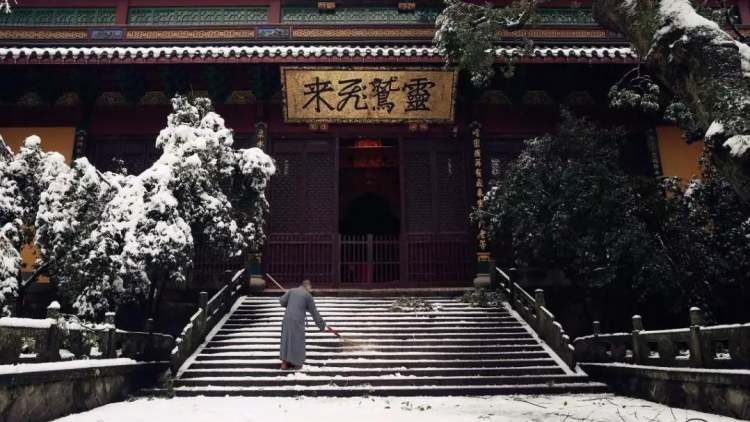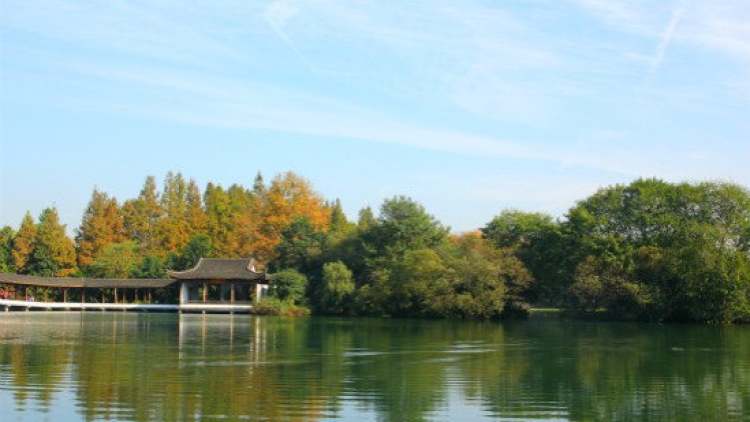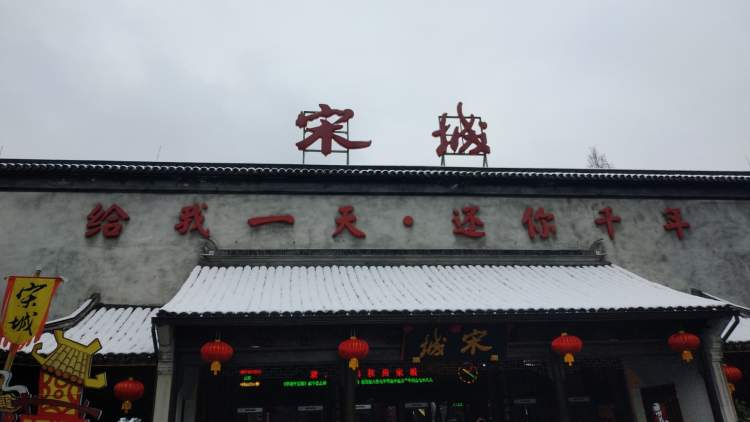Lingyin Temple, also known as Yunlin Temple, was founded in 326 A.D. and is the earliest ancient temple in Hangzhou. The West Indian monk Monk Hui Li was the founding patriarch of Lingyin Temple. He traveled in the Central Plains, came to Zhejiang, saw the strange mountain peaks here, and thought that it was "hidden by the fairy", so he built a temple in front of the Feilai Peak, called Lingyin. Over the past thousand years, Lingyin Temple has been destroyed and rebuilt several times, and has been fully renovated in 1975, and is now a national key cultural relics protection unit.
The Tianwang Hall, the Daxiong Treasure Hall, the Yakushi Hall, the Jikji Hall, and the Huayan Hall form the central axis of the Lingyin Temple. There is a door plaque hanging in front of the hall of the Tianwang Palace, which reads the four words "Yunlin Zen Temple", which is the name given by the Kangxi Emperor during his southern tour. There is a statue of the protector god Wei Tuo in the Tianwang Palace, the statue is 2.5 meters high, carved from camphor wood, and is a cultural relic left over from the Southern Song Dynasty. The Daxiong Treasure Hall is referred to as the "Great Hall", which is the place where the monks of the temple concentrate on practicing in the morning and evening. There is an octagonal nine-layer imitation wood stone tower on both sides of the outside of the main hall, each side of the tower body is finely carved, it is a relic of the Northern Song Dynasty. In the middle of the main hall is a 24.8-meter-high Sakyamuni lotus seat, which is also the largest camphor wood carving statue in China.
On both sides of the central axis, a number of buildings are attached. The Reiyin Library is located to the west of the Yakushijeon, where the books collected by the temple over the centuries are stored. Walking into the door, you can see that the large bookshelves on both sides are full of books, mainly Buddhism, literature, history and philosophy, and the classification method is no different from that of ordinary libraries. There are also a number of classic scriptures in the museum, such as "Taizheng Collection", "Qianlong Tripitaka" and so on, which are suitable for tourists who are interested in Buddhist culture. In addition, there is also a special reading room in the museum, and all books are only allowed to be borrowed by temple monks, and visitors and pilgrims can read them in the museum.
The reason why Lingyin Temple is widely known is inseparable from Jigong. The TV series "Living Buddha Jigong" makes the public familiar with this Southern Song Dynasty monk, according to legend, Jigong became a monk in Lingyin Temple, and today's Lingyin Temple also has a special Jigong Hall to commemorate. There are Jigong murals on the four walls of Jigong Palace, depicting the legendary life of the protagonist in the Jigong story, a total of 18 murals, 3 meters wide, 50 meters long, and the creator took three years to complete.
In addition to being able to pray to the Buddha and read Buddhist books, tourists can also choose to go to the restaurant to have a full meal. Located at the Aman Fayun Hotel near the temple, the restaurant is staffed by chefs and has more than a dozen dining tables. The menu in the museum is rich and diverse, with a Zen feel, whether it is a hot soup of matsutake mushrooms or simple temple vegetables, it is worth savoring. If you're going to eat, it's best to make a reservation one day in advance.
In order to protect the temple, Lingyin Temple does not allow incense to be lit, and when you buy a ticket, you will get a three-pillar incense gift from the temple. Before entering the Lingyin Temple, you need to buy a ticket for the Feilai Peak Scenic Area, which faces the Lingyin Temple, where there are Buddhist grotto statues for five generations, as many as more than 340 statues. In addition to Feilai Peak, there are other attractions around Lingyin Temple that are worth exploring, and those who have more time can also choose to visit the nearby Sansanzhu.
Suggested duration: 2 hours
Tickets: Lingyin incense flower coupon 30 yuan/person, Feilaifeng 45 yuan/person
Tips: 1. Bring mosquito repellent water and sunscreen products in summer; 2. Incense is not allowed in the temple, so please do not bring incense inside.







